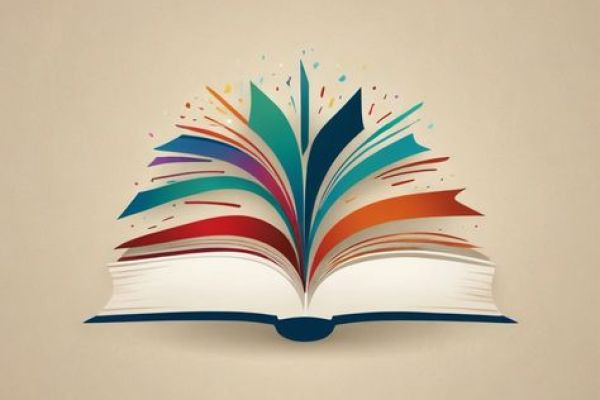Literary Genres and Forms: Exploration of Poetry, Drama, Novels, Short Stories, and Essays
Introduction
Literature is a vast and diverse field that encompasses various genres and forms, each offering unique ways of storytelling, expression, and exploration of the human experience. Literary genres and forms are the building blocks of literature, defining how stories are told and how ideas are communicated. Among the most significant literary genres are poetry, drama, novels, short stories, and essays. Each of these genres has distinct characteristics, conventions, and purposes, and together, they offer a comprehensive understanding of the literary world. This essay delves into the key aspects of these literary genres and forms, exploring their history, characteristics, and significance.
Poetry
Poetry is one of the oldest and most expressive forms of literature, known for its ability to convey deep emotions, ideas, and imagery in a concentrated form. Poetry is characterized by its use of rhythm, meter, and often rhyme, although modern poetry has increasingly embraced free verse, which lacks a consistent meter or rhyme scheme. The power of poetry lies in its ability to evoke emotions, create vivid imagery, and explore complex themes with brevity and precision.

Historically, poetry has been used as a means of storytelling, as seen in epic poems like Homer’s *"The Iliad"* and *"The Odyssey."* These long narrative poems recount the deeds of heroic figures and are rooted in oral tradition, where poetry served as a way to pass down history and culture. Lyric poetry, another significant form, is more personal and introspective, often expressing the poet’s emotions and thoughts. Examples of lyric poetry can be found in the works of poets like William Wordsworth and Emily Dickinson, who explore themes of nature, identity, and the human condition.
One of the defining features of poetry is its use of figurative language, including metaphors, similes, personification, and symbolism. These literary devices allow poets to create layers of meaning and engage readers on multiple levels. For example, Robert Frost’s poem *"The Road Not Taken"* uses the metaphor of a fork in the road to explore themes of choice and consequence, resonating with readers on a personal and philosophical level.
Modern poetry has seen a shift towards free verse and experimental forms, as seen in the works of poets like T.S. Eliot and Langston Hughes. These poets broke away from traditional forms and meters, using innovative structures and rhythms to capture the complexities of modern life. Poetry remains a vital form of literary expression, offering both writers and readers a way to explore and articulate the intricacies of human experience.
Drama
Drama is a genre of literature that is intended to be performed by actors on a stage, with dialogue and action driving the narrative. The roots of drama can be traced back to ancient Greece, where playwrights like Aeschylus, Sophocles, and Euripides laid the foundation for Western drama with their tragic plays. These early dramas explored themes of fate, morality, and the human condition, often centered around mythological figures and historical events.
The two primary forms of drama are tragedy and comedy. Tragedy, as exemplified by the works of William Shakespeare, such as "Hamlet" and "Macbeth," deals with serious themes and often involves the downfall of the protagonist due to a tragic flaw or fate. Tragedies are known for their exploration of human suffering, moral dilemmas, and the consequences of actions, providing profound insights into the human psyche.

Comedy, on the other hand, is characterized by humor, wit, and often a happy resolution. It explores the lighter side of life, focusing on social issues, human follies, and relationships. Shakespeare’s "A Midsummer Night’s Dream" and Oscar Wilde’s "The Importance of Being Earnest" are classic examples of comedic drama that use humor and satire to comment on social norms and human behavior.
In addition to tragedy and comedy, drama has evolved to include various sub-genres, such as tragicomedy, melodrama, and farce. Tragicomedy blends elements of both tragedy and comedy, creating plays that are both serious and humorous, often with a mix of emotions and tones. Melodrama emphasizes sensationalism and exaggerated emotions, often with clear distinctions between good and evil. Farce is a sub-genre of comedy that relies on exaggerated situations, physical humor, and improbable events to entertain the audience.
Modern drama has expanded to include theater of the absurd, social drama, and political theater. These forms of drama often challenge traditional structures and conventions, using experimental techniques to explore complex social and political issues. Playwrights like Samuel Beckett, Bertolt Brecht, and Lorraine Hansberry have used drama as a platform to critique society, question authority, and provoke thought.
Novels
The novel is a long, fictional narrative that provides a detailed and complex exploration of characters, settings, and themes. Unlike shorter forms of fiction, the novel allows for the development of intricate plots and deep characterizations, making it one of the most versatile and enduring forms of literature.
The history of the novel can be traced back to the early 18th century, with works like Daniel Defoe’s "Robinson Crusoe" and Samuel Richardson’s "Pamela" often cited as among the first English novels. These early novels laid the groundwork for the development of the form, with a focus on realism, character development, and social commentary.

Novels can be classified into various sub-genres, including historical fiction, science fiction, fantasy, romance, mystery, and literary fiction. Each sub-genre offers its unique approach to storytelling and exploration of themes. For example, historical fiction, such as Hilary Mantel’s "Wolf Hall," immerses readers in a specific historical period, blending factual events with fictionalized narratives. Science fiction, as seen in the works of Isaac Asimov and Philip K. Dick, explores futuristic and speculative concepts, often addressing issues of technology, identity, and the nature of reality.
One of the strengths of the novel as a form is its ability to explore the inner lives of characters, providing readers with a deep understanding of their thoughts, emotions, and motivations. Novels like Leo Tolstoy’s "War and Peace" and Virginia Woolf’s "Mrs. Dalloway" offer rich, multi-dimensional portraits of characters, delving into their psychological complexities and the social environments in which they live.
The novel also serves as a powerful tool for social commentary, addressing issues such as class, gender, race, and politics. Authors like Charles Dickens, Jane Austen, and Toni Morrison have used the novel to critique societal norms and highlight the struggles and injustices faced by individuals and communities. Through their narratives, novels can challenge readers to think critically about the world around them and consider alternative perspectives.
Short Stories
The short story is a brief, fictional narrative that focuses on a single event, character, or theme. Despite its brevity, the short story is a powerful form of literature that can evoke strong emotions and convey profound messages in just a few pages.
Short stories often focus on a single, pivotal moment in a character’s life, using concise and economical language to create a lasting impact. This form is known for its ability to capture the essence of a situation or emotion, making every word and sentence significant. Writers like Edgar Allan Poe, Anton Chekhov, and Alice Munro have mastered the art of the short story, using it to explore themes of love, loss, identity, and morality.

One of the defining characteristics of the short story is its focus on a singular theme or idea. Unlike novels, which can explore multiple themes and subplots, short stories are typically more focused and concentrated, delivering a powerful message or insight in a condensed form. This focus allows for a deeper exploration of specific emotions, experiences, or moments, making the short story a potent and evocative form of literature.
The short story is also versatile, lending itself to various genres and styles. It can be realist or fantastical, humorous or tragic, and can explore a wide range of themes and ideas. The brevity of the short story allows writers to experiment with form, structure, and narrative techniques, creating innovative and memorable works.
Essays
The essay is a non-fictional, prose literary form that presents the author’s argument, analysis, or reflection on a particular topic. Essays are characterized by their clarity, coherence, and focus, with the author’s voice and perspective playing a central role in shaping the narrative.

Essays can be classified into various types, including descriptive, narrative, expository, persuasive, and reflective. Descriptive essays paint a vivid picture of a person, place, or thing, using sensory details to create a rich and immersive experience for the reader. Narrative essays tell a story, often drawing on the author’s personal experiences to convey a message or insight. Expository essays provide information and explanations, often in a straightforward and logical manner, making them a common form of academic writing. Persuasive essays aim to convince the reader of a particular point of view, using evidence and reasoning to support the argument. Reflective essays offer the author’s thoughts and reflections on a specific experience or topic, often delving into the deeper meaning and significance of the subject.
Essays have been a significant form of literature for centuries, with writers like Michel de Montaigne, who is often credited with popularizing the form, using essays to explore philosophical and personal topics. In the modern era, essays continue to be an important vehicle for exploring complex ideas, social issues, and personal reflections, with writers like George Orwell, Joan Didion, and James Baldwin contributing to the evolution of the form.
Conclusion
The exploration of literary genres and forms—poetry, drama, novels, short stories, and essays—reveals the rich diversity of literature and its ability to capture the human experience in various ways. Each genre offers unique opportunities for expression



